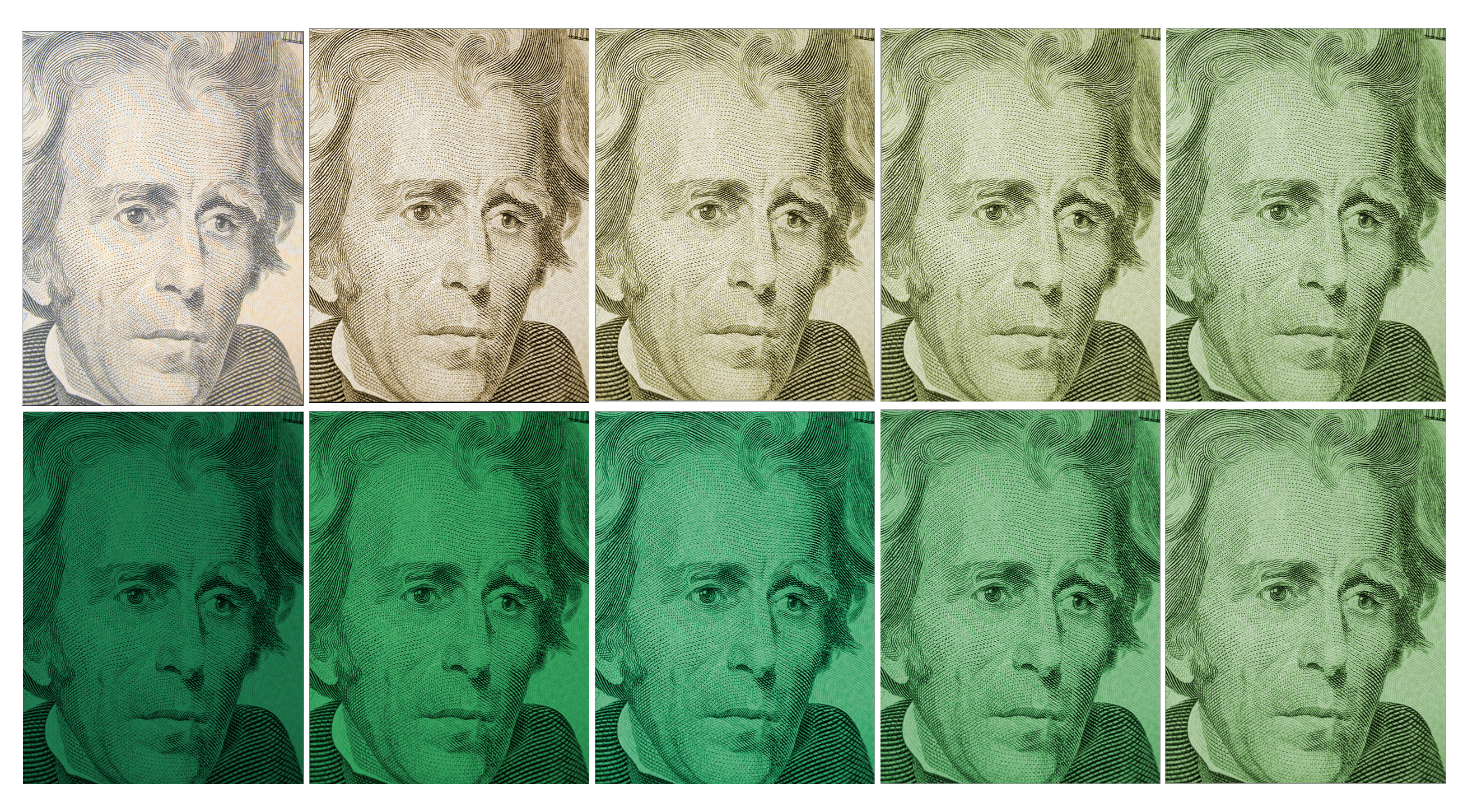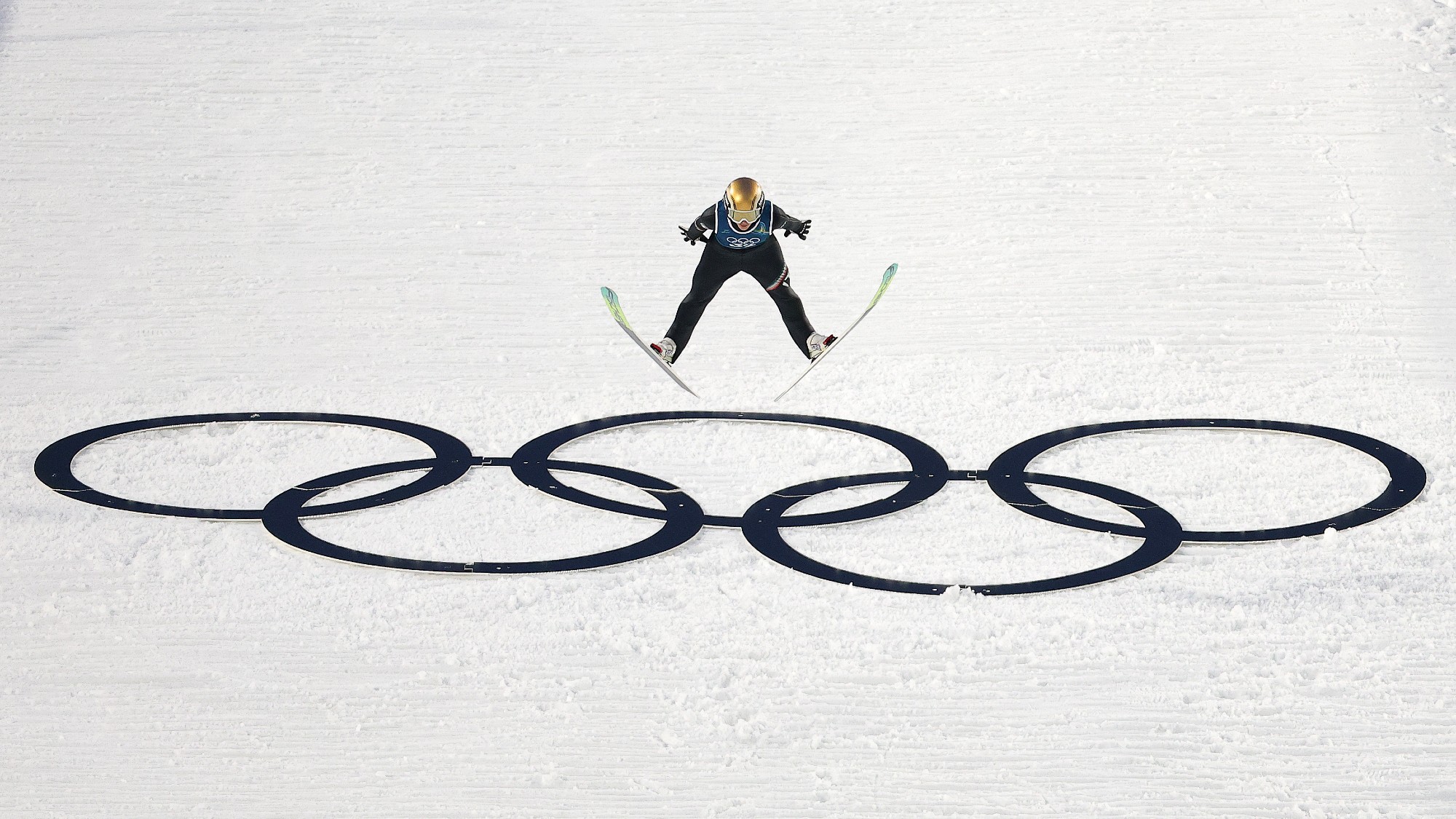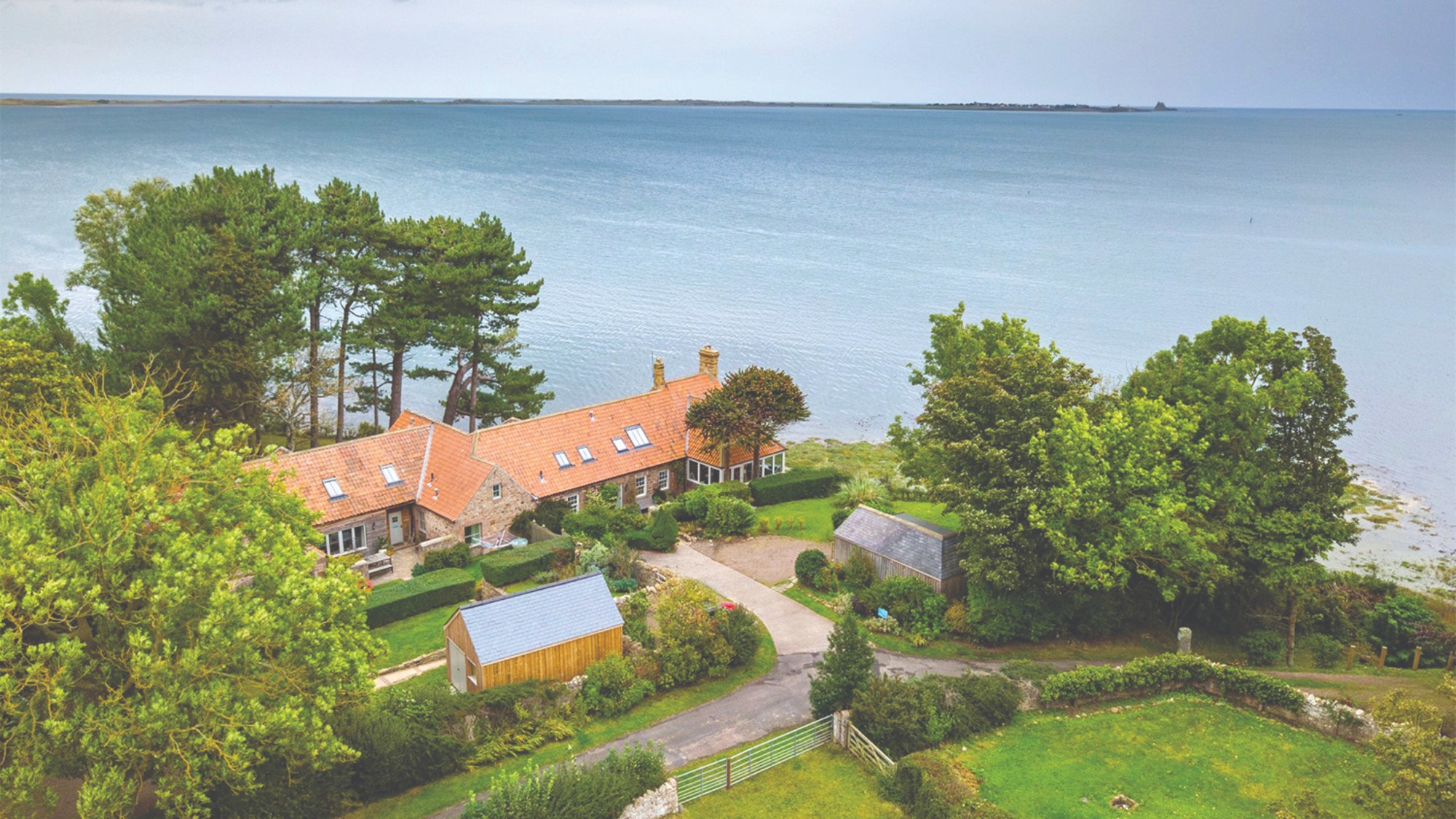Andrew Jackson was America's worst 'great' president
If you dislike what the presidency has become, blame Old Hickory


A free daily email with the biggest news stories of the day – and the best features from TheWeek.com
You are now subscribed
Your newsletter sign-up was successful
Andrew Jackson is one of America's "great" presidents. At least that's what the federal notes in my wallet and the annual Jefferson-Jackson fundraiser for the Democratic Party tell me. My high school history textbook catechized me on an "Age of Jackson" and the bold inauguration of "Jacksonian democracy."
I don't deny the bark-chewing, bloody-axe awe that his life story inspires. Jackson grew up in log-cabin Carolinian poverty, became an orphan during the Revolutionary War, and then rose into a kind of frontier aristocracy, making his fortune in Tennessee at the turn of the century. He was a plantation owner, who bought and sold slaves. He served in the House and briefly in the Senate.
Jackson was the embodied zenith of Southern Scots-Irish honor culture. When Charles Dickinson called him "a coward and equivocator," the spat evolved into a formal duel. The excellent marksman Dickinson chose pistols and broke two of Jackson's ribs with a quick first shot. Even though Jackson's ribs were shattered, honor compelled Dickinson to stay in his spot 24 feet in front of the future president. Old Hickory took his time — so much that others questioned his honor after the fact — steadied himself, and fired a fatal shot.
The Week
Escape your echo chamber. Get the facts behind the news, plus analysis from multiple perspectives.

Sign up for The Week's Free Newsletters
From our morning news briefing to a weekly Good News Newsletter, get the best of The Week delivered directly to your inbox.
From our morning news briefing to a weekly Good News Newsletter, get the best of The Week delivered directly to your inbox.
As commander and later major general of the Tennessee militia, he maneuvered himself into important theaters during the War of 1812. He crushed the Red Sticks at the Battle of Horseshoe Bend, thereby opening up more of the Mississippi Territory for American settlement. At the turn of the year, he inflicted a major defeat on the British at the Battle of New Orleans. After the war and with designs on the presidency, he hired a few biographers in succession to spread perhaps the most captivating story of his life: his capture by the British at age 14 during the Revolutionary War. The story goes that when he refused to clean the boots of a British soldier, he was beaten with a sword, receiving his facial scars.
But Jackson's sense of honor was far less about protecting a good reputation than instilling a fearsome one through terrible violence. He was a smoldering latrine fire of resentments and rage. And in many ways, quarrels about honor obsessed his presidency.
Jackson's life story seemed almost purpose-built for an American republic that had just adopted universal white male suffrage in 1820. His "defeat" in 1824 by means of the corrupt bargain, which had elevated popular-vote loser and Revolutionary scion John Quincy Adams, shaped his rage at "special privilege."
Jackson symbolized the up-from-nothing story of so many of his countrymen. But it was a tainted legacy. He was a slave-owner who bought and sold men in bulk. When one of his slaves showed the Jacksonian temerity to escape his master, Jackson offered a $50 reward "and $10 extra for every 100 lashes a person will give to the amount of 300" — basically a freelance death sentence. Part of Jackson's personal wealth came through land that he acquired even though it had been promised to Indians in a treaty. It's completely justified to say that Jacksonian democracy reflected this same grasping ambition of the newly expanded white voting classes at the expense of slaves and Indians.
A free daily email with the biggest news stories of the day – and the best features from TheWeek.com
As president, he reversed the alternately benign and malign neglect of Indian affairs by his predecessors and engaged in the forced removal of Indians from the South, culminating in the Trail of Tears. It's impossible to know whether Jacksonian rivals like the "Adams men" could have ever found policies that encouraged prosperous co-existence and even cooperation between natives and American whites. But Jackson's policies irreversibly doomed relations with these tribes, and their descendants still suffer from them today.
Besides the destruction of his rivals and the accumulation of personal power, it's hard to pin down Jackon's guiding principles. Was he a strict constructionist or a federal-power expansionist? He set himself to destroy the Second Bank of the United States in a Jeffersonian rage. And he vetoed development projects like the Maysville Road. But he also was fearsome in defending the prerogative of the federal government in tariff policy. When South Carolina began threatening secession, Jackson told a South Carolinian, "If a single drop of blood shall be shed there in opposition to the laws of the United States, I will hang the first man I can lay my hand on engaged in such treasonable conduct, upon the first tree I can reach."
Proponents of Jackson claim he broke up some networks of privilege among his rivals. That may be true — but it also entrenched amateurism in civil service and a new system of patronage politics (with their own unearned privileges) which would define American government for several generations. On the night of his inauguration, office-seekers so crowded the White House that the party devolved into a near riot. Jackson's purge of federal office-holders relied on a campaign of trumped-up and false charges against incumbents, especially in the Northeast where Jackson tried to build a base of political loyalty. This marauding style of patronage machine-building would live on for a century, most notably in the squalor of Kansas' Pendergast machine and New York's Tammany Hall.
John Quincy Adams saw the effect of Jackson's presidency on the republic with dread. He wrote:
The American Union as a moral Person in the family of Nations, is to live from hand to mouth, to cast away, instead of using for the improvement of its own condition, the bounties of Providence, and to raise to the summit of Power a succession of Presidents the consummation of whose glory will be to growl and snarl with impotent fury against a money broker's shop, to rivet into perpetuity the clanking chain of the Slave, and to waste in boundless bribery to the west the invaluable inheritance of the Public Lands. [Adams]
We often say that George Washington was a great president. That's wrong: He was a great man and a good president. Washington was good precisely because he refused to make himself a great president. His sculpted presence on a mountain in the Dakotas would be a source of bafflement and embarrassment to him.
Jackson was the first "great" president. Jackson's authoritarian will, his eagerness with the veto pen, his unprincipled use of federal power against non-whites, and his ugly patronage schemes changed forever the character of the Republic. Jackson pushed America's fragile Republican institutions down in front of the march of mass democracy. He put the executive branch on a tilt that eventually made it superior to Congress, and made the president himself into a kind of populist king and symbol of the people's will. The American nation has suffered from infantalized Congresses, cowardly judiciaries, and "great presidencies" ever since.
Michael Brendan Dougherty is senior correspondent at TheWeek.com. He is the founder and editor of The Slurve, a newsletter about baseball. His work has appeared in The New York Times Magazine, ESPN Magazine, Slate and The American Conservative.
-
 What to watch out for at the Winter Olympics
What to watch out for at the Winter OlympicsThe Explainer Family dynasties, Ice agents and unlikely heroes are expected at the tournament
-
 Properties of the week: houses near spectacular coastal walks
Properties of the week: houses near spectacular coastal walksThe Week Recommends Featuring homes in Cornwall, Devon and Northumberland
-
 Will Beatrice and Eugenie be dragged into the Epstein scandal?
Will Beatrice and Eugenie be dragged into the Epstein scandal?Talking Point The latest slew of embarrassing emails from Fergie to the notorious sex offender have put her daughters in a deeply uncomfortable position
-
 The billionaires’ wealth tax: a catastrophe for California?
The billionaires’ wealth tax: a catastrophe for California?Talking Point Peter Thiel and Larry Page preparing to change state residency
-
 Bari Weiss’ ‘60 Minutes’ scandal is about more than one report
Bari Weiss’ ‘60 Minutes’ scandal is about more than one reportIN THE SPOTLIGHT By blocking an approved segment on a controversial prison holding US deportees in El Salvador, the editor-in-chief of CBS News has become the main story
-
 Has Zohran Mamdani shown the Democrats how to win again?
Has Zohran Mamdani shown the Democrats how to win again?Today’s Big Question New York City mayoral election touted as victory for left-wing populists but moderate centrist wins elsewhere present more complex path for Democratic Party
-
 Millions turn out for anti-Trump ‘No Kings’ rallies
Millions turn out for anti-Trump ‘No Kings’ ralliesSpeed Read An estimated 7 million people participated, 2 million more than at the first ‘No Kings’ protest in June
-
 Ghislaine Maxwell: angling for a Trump pardon
Ghislaine Maxwell: angling for a Trump pardonTalking Point Convicted sex trafficker's testimony could shed new light on president's links to Jeffrey Epstein
-
 The last words and final moments of 40 presidents
The last words and final moments of 40 presidentsThe Explainer Some are eloquent quotes worthy of the holders of the highest office in the nation, and others... aren't
-
 The JFK files: the truth at last?
The JFK files: the truth at last?In The Spotlight More than 64,000 previously classified documents relating the 1963 assassination of John F. Kennedy have been released by the Trump administration
-
 'Seriously, not literally': how should the world take Donald Trump?
'Seriously, not literally': how should the world take Donald Trump?Today's big question White House rhetoric and reality look likely to become increasingly blurred
